Authorized by the Chairman of the Provincial People's Committee, Mr. Tran Phung, Deputy Director of the Provincial Department of Ethnic Minorities and Religions, had an interview with reporters on the above topic.
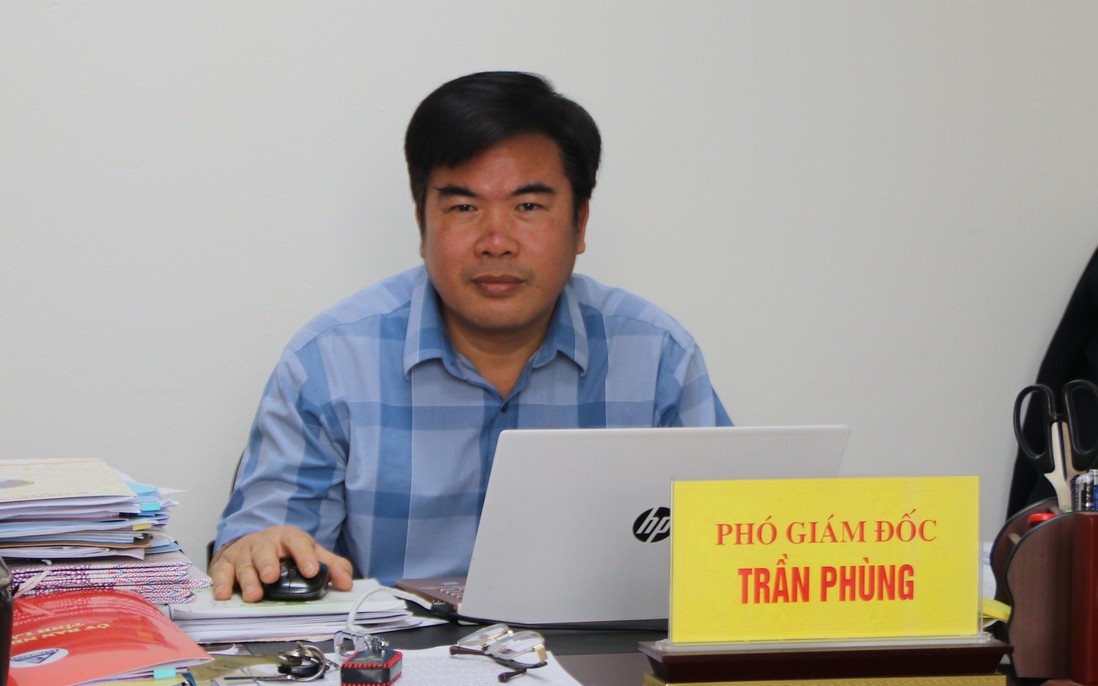
Reporter: Could you please tell us about the results achieved in implementing Project 6 - Communication and poverty reduction on information under the National Target Program on Sustainable Poverty Reduction for the period 2021 - 2025 to improve people's access to information, especially ethnic minorities, contributing to multidimensional poverty reduction in Lao Cai province?
Mr. Tran Phung: The implementation of the information poverty reduction project activities in Lao Cai province in recent times has achieved quite positive results.
Firstly , improving information infrastructure: The province has focused on investing in building, upgrading, and establishing new commune radio stations for communes without radio stations in particularly difficult commune areas, ensuring that 100% of communes, wards, and towns have radio stations with more than 2,500 loudspeaker clusters operating stably and smoothly. In addition, Lao Cai has focused on investing in facilities for grassroots information activities with the goal of modernizing the grassroots information system, forming a database, and digitizing grassroots information sources to meet the requirements of providing source information. Investing in and upgrading the grassroots radio system, modernizing the grassroots information system, and investing in postal, telecommunications, and internet infrastructure has had a direct impact on people, helping them access information more easily.
Second is training and education: In the period of 2021 - 2025, 07 training courses were organized to improve the capacity of information and communication officers with nearly 350 officers participating. At the training courses, trainees were instructed in the skills of operating and managing loudspeaker clusters; skills in writing news and articles to build grassroots radio programs; practice presenting a radio program on loudspeakers; skills in editing news and articles on electronic information pages, on social networks, and public electronic newsletters, in order to improve the capacity of the information staff, meeting the requirements of propaganda work for socio-economic development in the locality.
Third is the work of propaganda and policy dissemination: Information and propaganda work is deployed deeply and widely in many forms on mass media, on digital platforms, handbooks, through grassroots radio systems, etc. The content of propaganda focuses on guiding the application of science in production and business, contributing to poverty reduction; praising typical advanced examples in poverty reduction, creating a vibrant emulation movement; raising awareness and responsibility of the whole society for poverty reduction work, arousing the spirit of self-reliance to escape poverty and mobilizing resources to achieve the goal of sustainable poverty reduction. Press agencies carry out this work regularly and continuously, contributing to helping people change their way of thinking, gradually overcoming the mentality of waiting and relying on the State, arousing positivity, proactiveness and creativity among the people. In particular, Lao Cai province has deployed a Policy Communication model on a digital platform with the goal of ensuring the provision of complete, timely and accurate policy information to organizations and citizens, creating consensus among people in the process of policy implementation, thereby contributing to socio-economic development, poverty reduction, and national defense and security stability in the province.
Since then, we have achieved the following results:
For the first indicator "90% of poor and near-poor households have the need to access telecommunications and internet services": The implementation results by the end of 2024 reached 96.7% of poor and near-poor households having the need to access telecommunications and internet services; By the end of 2025, it is expected to achieve 100% of the assigned plan for the period 2021 - 2025.
For the second indicator "95% of households living in poor districts and extremely disadvantaged communes in coastal and island areas have access to information on sustainable poverty reduction through publications and communication products": The implementation results by the end of 2024 reached 93.5% of households living in poor districts and extremely disadvantaged communes having access to information on sustainable poverty reduction through publications and communication products; By the end of 2025, it is expected to reach 98% of the assigned plan for the period 2021 - 2025.
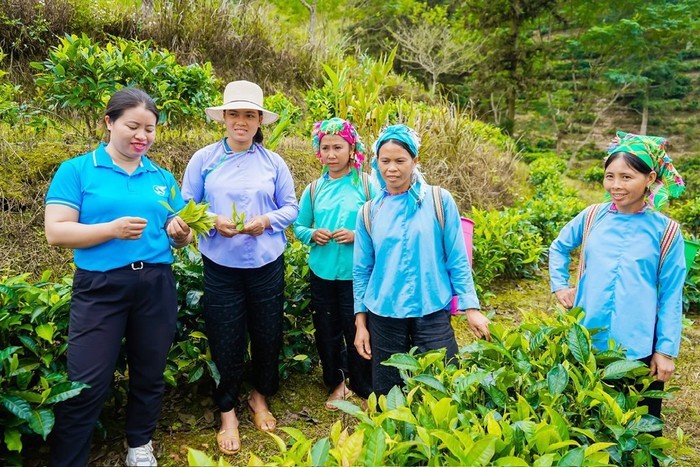
PV: For ethnic minority areas in general and ethnic minority women in particular, what solutions does the People's Committee of Lao Cai province have to help them access poverty reduction information?
Mr. Tran Phung: Lao Cai Provincial People's Committee has directed sectors and localities to synchronously deploy solutions to help ethnic minorities, especially women, access information on poverty reduction, namely:
Strengthen the leadership of Party committees and administration, promote the role of the Fatherland Front and socio-political organizations in poverty reduction work; assign cadres and Party members in village, hamlet, and residential group Party cells to help poor households. Include the target of sustainable poverty reduction results in the annual evaluation criteria of Party committees, authorities, and organizations.
Promote communication to change and transform awareness in poverty reduction, mobilize the poor, poor households, and unemployed or underemployed people to promote their own abilities, effectively receive and use policies and support resources from the State, proactively strive to escape poverty, and not expect or rely on the State.
Timely and effectively use investment resources from the National Target Program on Sustainable Poverty Reduction for the 2021-2025 period, the National Target Program on New Rural Development for the 2021-2025 period and the Socio-Economic Development Program for Ethnic Minority and Mountainous Areas for the 2021-2030 period to contribute to sustainable poverty reduction.
Strengthen the inspection, supervision and evaluation of implementation results, combined with preliminary and final reviews and lessons learned in organizing and implementing poverty reduction programs. Do a good job of emulation and rewards to promptly motivate groups and individuals.
These solutions have contributed to improving access to information for ethnic minorities, especially women, supporting them in preserving and promoting the cultural values of ethnic minorities in association with tourism development, poverty reduction and improving and enhancing living standards and access to information.
Reporter: What are the advantages and difficulties in implementing those solutions? What lessons have been learned? What suggestions does the locality have to make information poverty reduction work more effective, sir?
Mr. Tran Phung: The implementation of the information poverty reduction project has both advantages and difficulties. Regarding advantages, propaganda activities deployed from the province to the grassroots level have contributed to raising people's awareness of sustainable poverty reduction; arousing the spirit of self-reliance and self-reliance to escape poverty of the people and the community. The information and communication infrastructure has developed strongly, ready to meet people's needs in using essential information services, contributing to promoting socio-economic development.
Regarding difficulties, investment funding to strengthen facilities for grassroots information activities (including facilities for the operation of commune radio stations in localities with particularly difficult socio-economic conditions), border guards to provide essential information content for society is still limited, not ensuring digital transformation for commune-level radio stations to widely cover and contribute to reducing information poverty. The staff at the grassroots level to carry out the management and operation of the grassroots information system is still thin, concurrent and often rotated, making management and implementation difficult.
During the implementation process, we also learned some lessons. That is, the attention of leadership, regular, close, timely direction, and close coordination of all levels, sectors, and localities in implementing poverty reduction programs are key factors to achieve high efficiency.
There is always close and synchronous coordination, promoting the effectiveness of the media in providing information, capturing and orienting public opinion, and creating social consensus.
It is necessary to organize training courses on information use skills for people, especially women, so that they can take advantage of information sources to support economic development.
Hereby, we also have some proposals to improve the effectiveness of information poverty reduction work as follows: Continue to invest in upgrading information infrastructure such as building and improving communal cultural houses, equipping public internet access devices so that people can easily access information...
Organize community communication programs: Use appropriate forms of communication such as social networks, loudspeakers, and leaflets to disseminate information on poverty reduction policies and economic development opportunities. Promote policy communication activities, focusing on investment attraction policies; vocational training and job placement for workers; social security work; policy communication on agriculture, rural areas, and farmers; provide essential information to ensure people's access to information.
Technical and financial support for women and youth: Provide vocational training courses and preferential loans so that ethnic minority women and youth can participate in economic activities, increase income and reduce poverty.
PV: Thank you!
Source: https://baolaocai.vn/lao-cai-day-manh-cong-tac-giam-ngheo-thong-tin-dong-bo-va-hieu-qua-post399775.html





![[Photo] Readers line up to visit the photo exhibition and receive a special publication commemorating the 135th birthday of President Ho Chi Minh at Nhan Dan Newspaper](https://vphoto.vietnam.vn/thumb/1200x675/vietnam/resource/IMAGE/2025/5/17/85b3197fc6bd43e6a9ee4db15101005b)
![[Photo] More than 17,000 candidates participate in the 2025 SPT Competency Assessment Test of Hanoi National University of Education](https://vphoto.vietnam.vn/thumb/1200x675/vietnam/resource/IMAGE/2025/5/17/e538d9a1636c407cbb211b314e6303fd)
![[Photo] Prime Minister Pham Minh Chinh chairs meeting on science and technology development](https://vphoto.vietnam.vn/thumb/1200x675/vietnam/resource/IMAGE/2025/5/17/ae80dd74c384439789b12013c738a045)


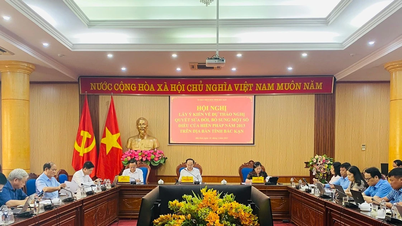

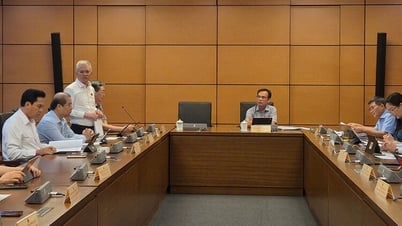










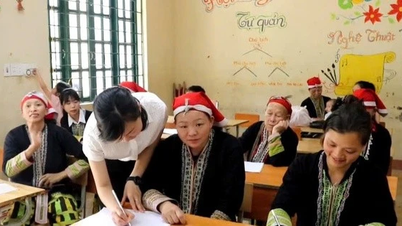

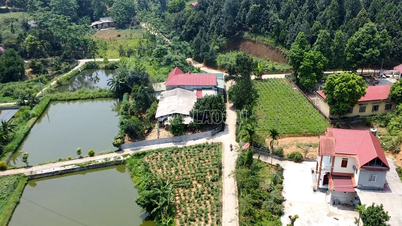
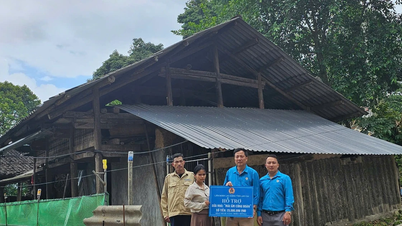
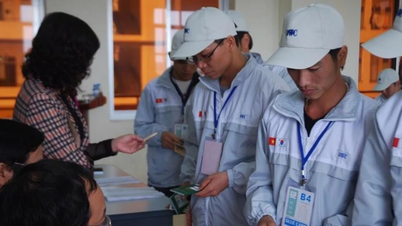

![[Photo] Nearly 3,000 students moved by stories about soldiers](https://vphoto.vietnam.vn/thumb/1200x675/vietnam/resource/IMAGE/2025/5/17/21da57c8241e42438b423eaa37215e0e)





















































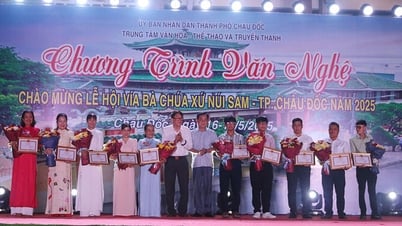








Comment (0)